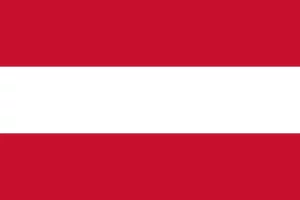RISE

Title
RISING COMPETENCES AND SKILLS IN LESS DEVELOPED DANUBE REGIONS THROUGH FOOD SECTOR CROSS-TOPIC INNOVATIONS
Project acronym
RISE
Program
INTERREG DANUBE REGION 2021-2027
Program priority
1 - SMART - A SMARTER DANUBE REGION
Specific objective
1.2 DEVELOPING SKILLS FOR SMART SPECIALISATION, INDUSTRIAL TRANSITION AND ENTERPRENEURSHIP
Duration
01.2024 - 06.2026
Project ID
DRP0200476
Lead Partner
POMURJE TECHNOLOGY PARK
Project budget
2.062.153,14 EUR
Interreg funding
1.649.722,48 EUR (80%)
PARTNERS

Pomurje Technology Park - lead partner (Slovenia, SI)
www.p-tech.si
Digital Innovation Hub Agrifood (Croatia, HR)
https://agrifoodcroatia.com/

Chamber of Commerce and Industry of Serbia (Serbia, RS)

Chamber of Economy of Montenegro (Montenegro, ME)
https://komora.me/

Digital Innovation Hub ONEX (Bosnia and Herzegovina, BA)
https://onex.digital/en

Pforzheim University (Germany, DE)
https://www.hs-pforzheim.de/

Regional Agency for Enterpreneurship and Innovations - Varna (Bulgaria, BG)
https://www.rapiv.org/bg/

The Roznava Regional Advisory and Information Centre (Slovakia, SK)
https://rpicrv.sk/en
South Transdanubian Regional Innovation Agency (Hungary, HU)
https://ddriu.hu/en/home/

University of Agricultural Sciences and Veterinary Medicine of Cluj-Napoca (Romania, RO)
https://www.usamvcluj.ro/
Burgenland Business Agency (Austria, AT)
https://wirtschaftsagentur-burgenland.at/PROJECT SOCIAL MEDIA
 #RISEproject
#RISEprojectPROJECT SUMMARY
The main challenge in remote areas of partner regions is declining
employment in traditional industries due to structural changes, highlighting
the need to stimulate economic activity. The food sector and related value
chains offer significant potential to improve the socio-economic situation in
these areas. The project aims to enhance entrepreneurial competences and skills
by leveraging food innovation to address global challenges. Outputs include a
joint transnational food mentor scheme, cross-sector assessment tools (digital,
energy, circular readiness), and a knowledge base e-platform for mentorship
services. The project involves 11 partners, with knowledge experts in digital
technologies, energy efficiency, and material circularity, and regional
partners responsible for local implementation. Its innovative approach
integrates cross-sector expertise with a focus on food and drink SMEs, offering
a unique program not seen elsewhere. The transnational added value includes a
mobile pool of experts and a network to help local SMEs become more innovative,
competitive, and better positioned for business expansion, while contributing
to job creation and reversing brain drain.
PROJECT RESULT
The durability of the project’s outputs and deliverables
will be ensured through their integration into partners’ operational
frameworks, making them a regular part of services and tools used by
organizations. Training materials and knowledge will be institutionalized,
enabling skills transfer and continuous use beyond the project’s end.
Digitization of resources, such as training materials, guidelines, and policy
recommendations, will ensure broad accessibility through online platforms.
Advocating for policy changes will further embed outputs into national and regional frameworks, ensuring long-term support. Sustainability plans
developed by each partner will detail commitments to maintain and promote the
outputs, including continued services and training. Regular stakeholder
engagement through workshops and forums will keep the deliverables relevant and
in active use. Successful models will be scaled up or replicated across regions
through collaborations, while continuous monitoring and evaluation will refine
outputs to meet stakeholder needs. These measures collectively ensure that the
project’s outputs remain impactful and accessible long after its conclusion.





